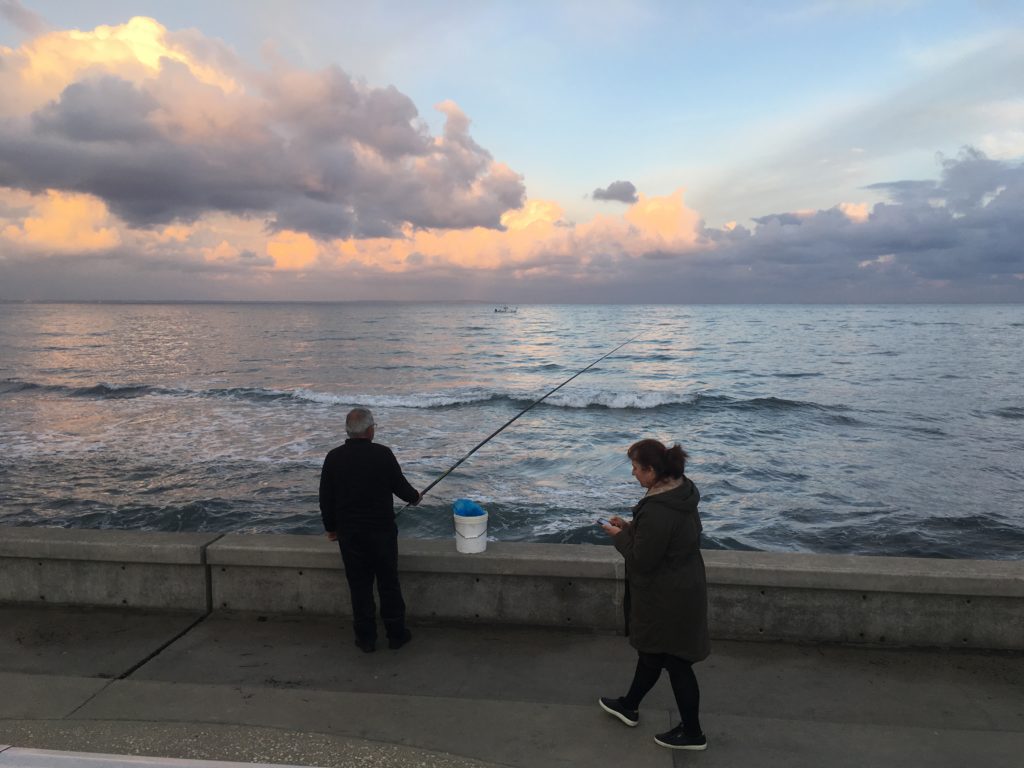
Larnaca- I spent three very tranquil days on the southern Cypriot coast where I didn’t do much other than walk around in the rain and sample savoury vegan cuisine as the hours rolled by. I’d longed for years to visit this outpost of Hellenic culture-both ancient and modern-anchored in the eastern Mediterranean. Zeno, the founder of stoicism, was born on Cyprus, as was the goddess Aphrodite if you believe in that sort of thing. I have the impression that mainland Greeks consider Cyprus its own separate deal with Arabic and Turkish linguistic influences fomenting a unique island dialect that might be abrasive to erudite Athenians as a hypothetical. The same may have been true for the Pontic Greeks from Abkhazia.
The third largest island in this sea saddled with a painful modern history just south of Turkey and west of Syria and Lebanon is a cultural and geopolitical outlier in several respects. It is part of the EU yet firmly outside the internally borderless Schengen area. I’d momentarily forgotten this when at the Vienna airport I wondered why i was going through an emigration queue to get my passport stamped despite that fact that I was boarding a domestic EU flight. Cyprus is in the eurozone (well the internationally recognised ethnically Greek republic anyway) but is more of Middle Eastern locale in terms of its proximity to the Levant than to, say, Brussels.
The island is locked in a frozen conflict with its Turkish minority inhabiting the unreognised Turkish Republic of Northern Cyprus in the northern 36% of its territory. After the failure of the enosis movement in the mid-20th century in which ethnic-Greek Cypriots sought to be formally incorporated into the Hellenic Republic (i,e, Greece), a coup ensured followed by a Turkish invasion that has divided the island ever since. Cyprus effectively has four governance entities: the Greek-ruled south, the Turkish-administered north, the UK exclaves of Akrotiri and Dhekelia-the so-called Sovereign Base Areas-and of course the United Nations Buffer Zone in Cyprus, better known as the Green Line, under control of Bangladeshi-led UN peacekeepers. interestingly timely note: movement between the UK territory and the Republic of Cyprus of Britons and Cypriots alike is fluid as both are EU member states but no one has an idea what may happen to the movement of people and goods on the island post-Brexit.
Larnaca is an ideal jumping off point to Lebanon because besides being perhaps the shortest genuinely international flight possible at just under 25 minutes, there’s a Lebanese/Armenian community there whereby you can brush up on rusty colloquial Arabic before boarding. It was a good few quiet days on this clean, confounding island with its complex human and political geography.